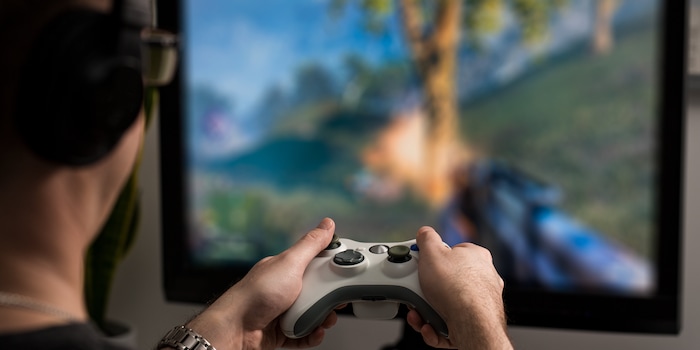
Millions of gamers have a higher risk of hearing damage
It's no secret that loud music can lead to hearing problems in the long term. However, games that are too loud could also be a risk factor - especially because many gamers play for a very long time.
Not all games are loud, but when it comes to shooters in particular, gamers apparently tend to set the sound higher than is healthy for their hearing. This is suggested by a new meta-study that analysed 14 previous studies with a total of around 50,000 people involved.
The problem with gaming is the borderline loudness in combination with the long playing time and the lack of awareness among players of the excessive volume.
How loud is too loud?
According to the World Health Organisation (WHO), leisure activities with high noise levels are among the most important risk factors for hearing loss later in life. Excessively loud music at concerts, in clubs or through headphones are the typical suspects, especially among younger people.
The WHO and the International Telecommunication Union (ITU) have jointly defined decibel limits that distinguish between safe and unsafe levels. The more often and longer you are exposed to loud noises, the greater the risk that you will later experience tinnitus or hearing loss.
For example, 80 decibels for 40 hours per week is said to be okay for adults. 80 decibels is roughly equivalent to a moving motorbike. A passing train is around 90 decibels - after around 6.5 hours per week, that should be enough. 98 decibels is like a jackhammer from a distance of ten metres and is said to cause hearing damage after just 38 minutes per week.
Up to 119 decibels in shooters
As a normal person, it is difficult to judge whether the music or game sound is too loud or not. One of the studies considered carried out volume measurements on headphones with four current shooters and a racing game in 2020. The measurements showed an average of 88.5 to 91.2 decibels for the shooters. This means that the volume is in the range that is already damaging to hearing after around six hours a week. However, volume peaks in the game can repeatedly reach up to 119 decibels, for example during loud shots or explosions. These peaks alone are already damaging to hearing, even if they only occur briefly. The racing game was also in the borderline range with an average of 85.6 decibels.
Most people underestimate the risk to their hearing, as the threat of hearing loss seems vague and far in the future. The meta-study also lists early signs of noise-induced hearing loss. These include:
- Tinnitus (constant beeping or ringing in the ear)
- Hyperacusis (increased sensitivity to noise)
- Difficulty understanding others, especially in background noise
Further studies are necessary
The scientists who worked on the meta-study did not carry out any basic research themselves. They merely searched other studies for aspects that link gaming and hearing problems and summarised their findings.
In their summary, however, the researchers also highlight the limitations of their research: Even if the link between loud gaming and later hearing problems seems logical, there are no long-term studies on this, only rudiments.
Header image: Shutterstock/REDPIXEL.PLFeels just as comfortable in front of a gaming PC as she does in a hammock in the garden. Likes the Roman Empire, container ships and science fiction books. Focuses mostly on unearthing news stories about IT and smart products.